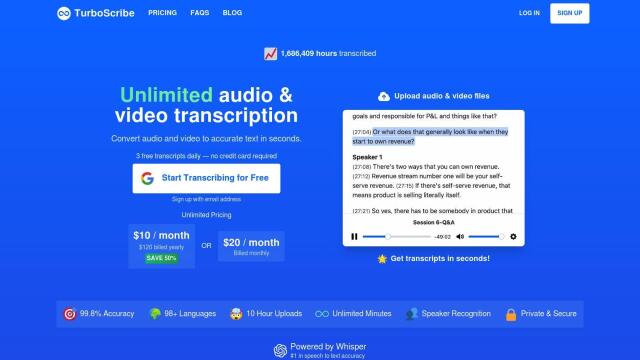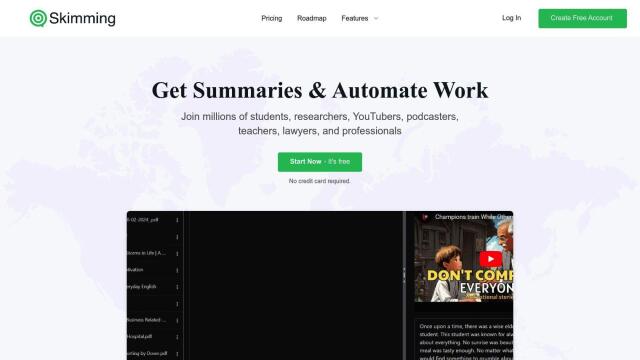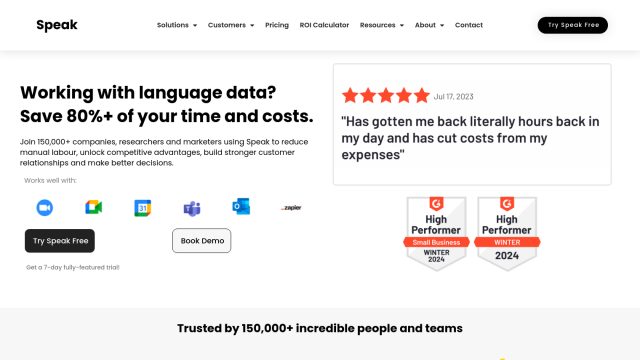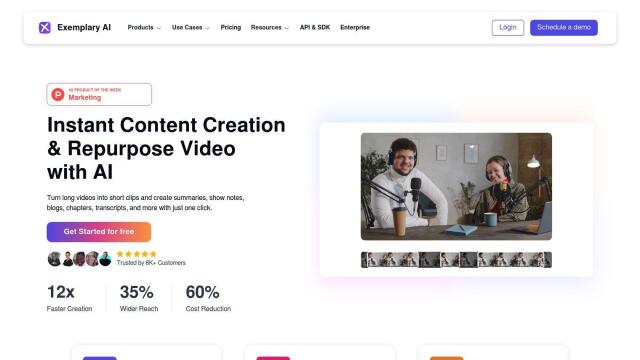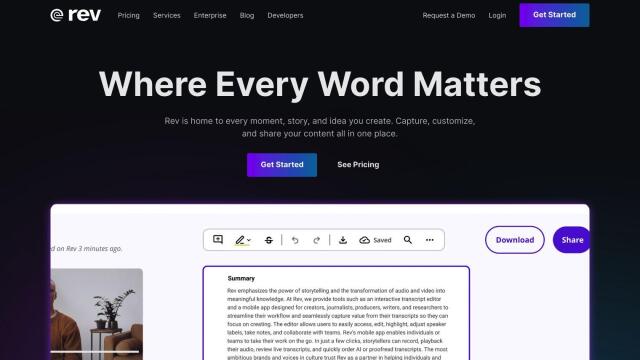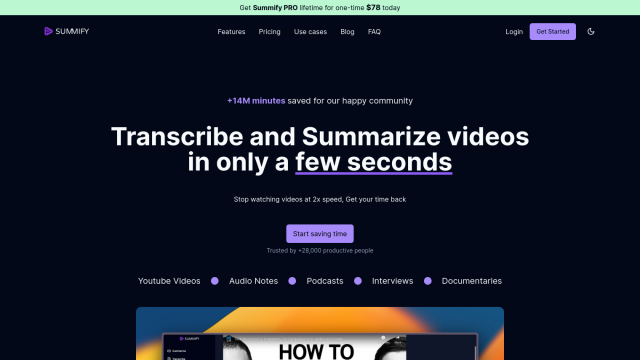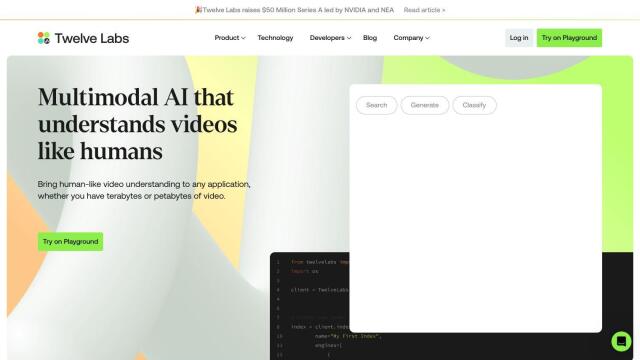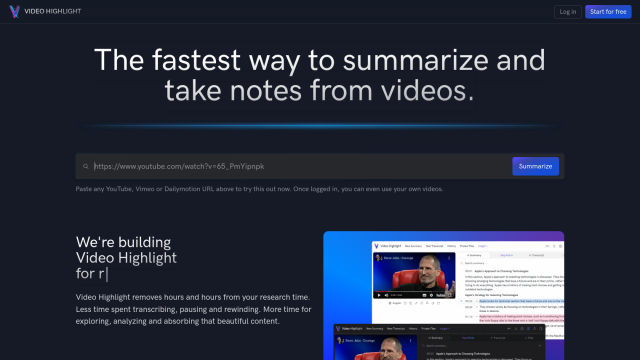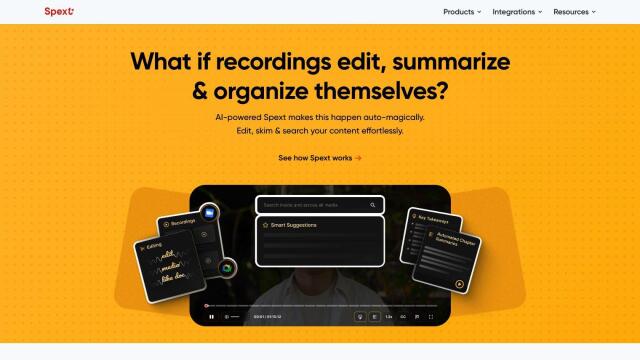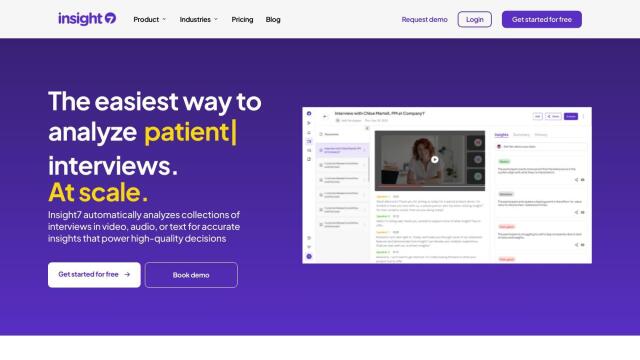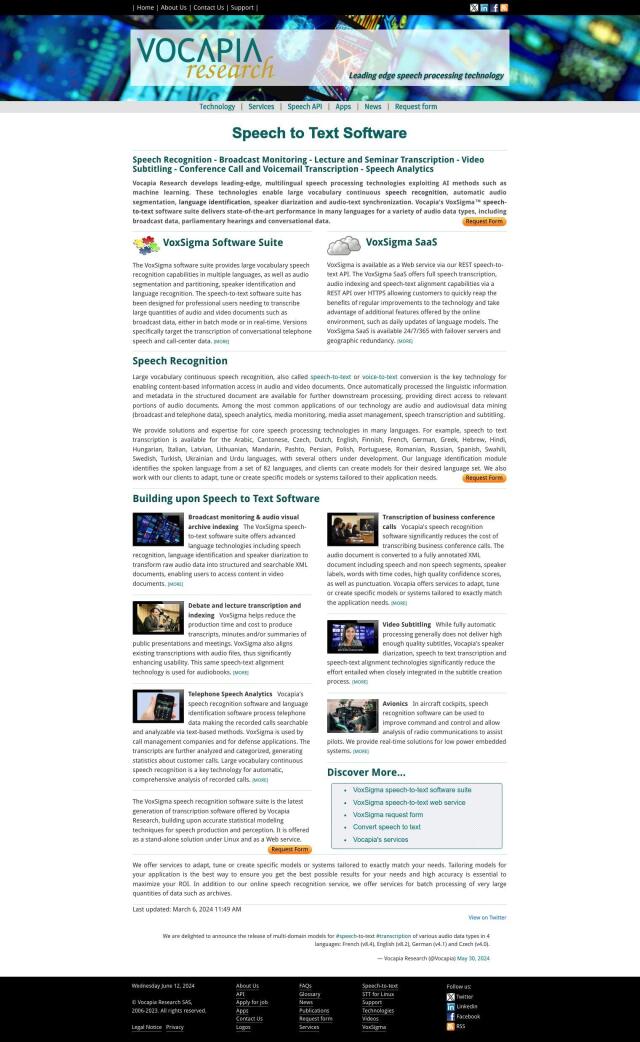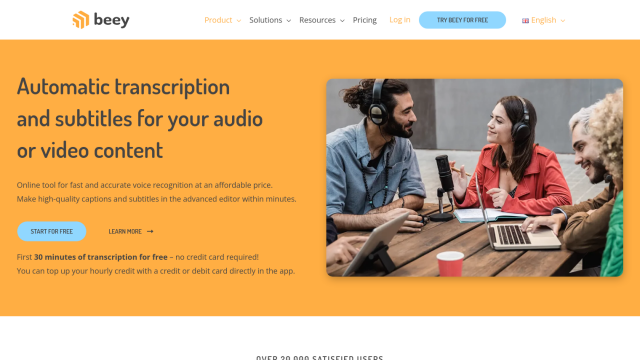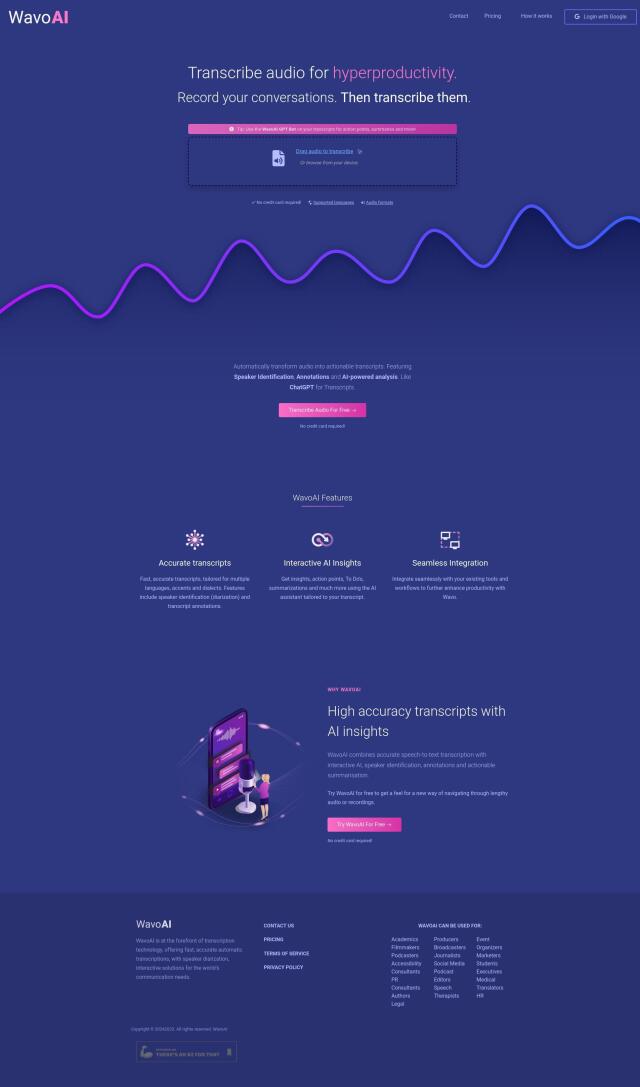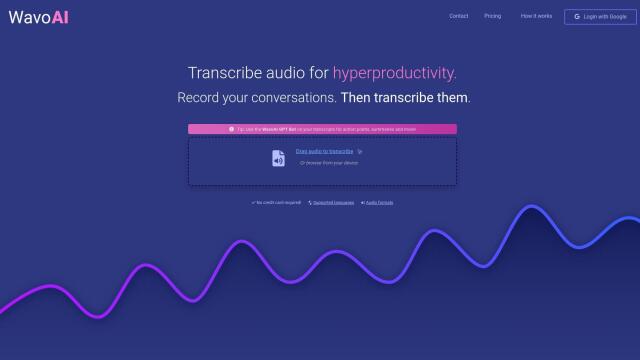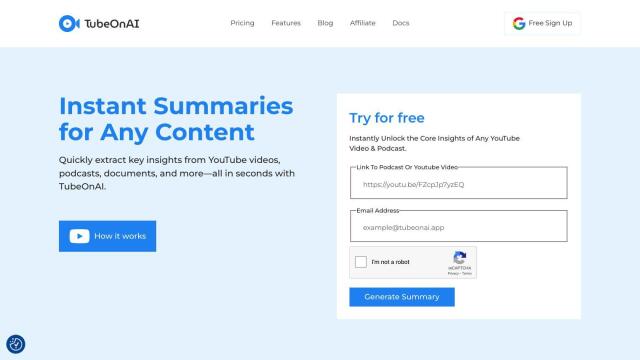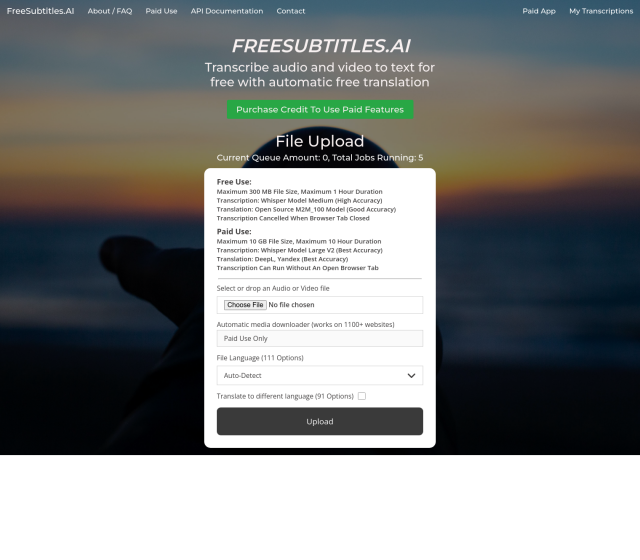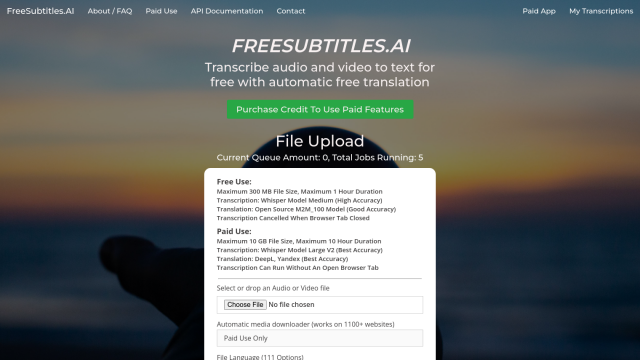Question: I'm looking for a solution that can help me extract information from audio and video files, do you have any suggestions?

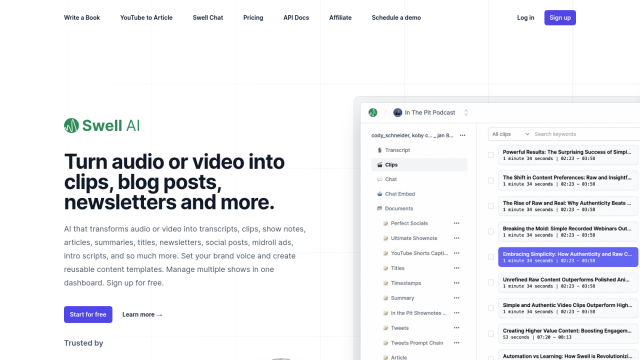
Swell AI
If you need a system to pull information out of audio and video files, Swell AI is a powerful option. The system converts audio or video into a variety of formats, including transcripts, clips, show notes, articles, summaries, titles, newsletters and social posts. It comes with a transcript editor that suggests AI-generated text and automatically labels speakers, and it's got content generation tools tuned for search and publishing. Pricing ranges from Hobby (free) to Agency ($49/month), so it's good for podcasters, content producers and agencies.

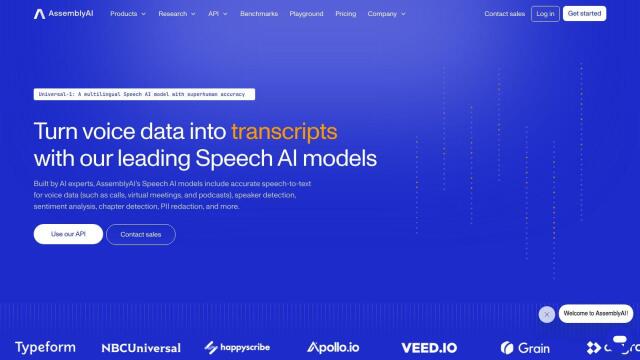
AssemblyAI
Another good option is AssemblyAI. The company offers a variety of AI models for speech-to-text transcription, speaker identification, sentiment analysis and other tasks. With integration tools that let you use its models in your own code, and support for more than 99 languages, it's a good option for companies building their own AI products that rely on voice data. AssemblyAI offers a free tier for prototyping and pay-as-you-go pricing, so you can use it for a variety of tasks.

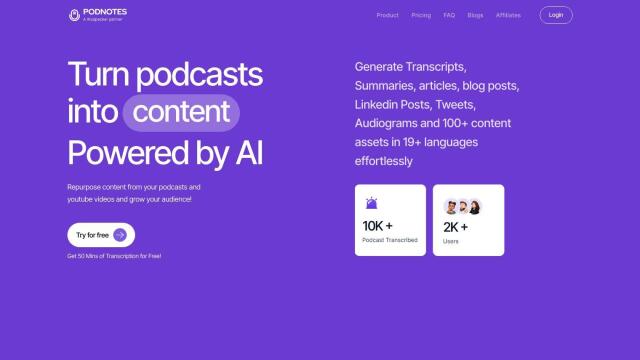
Podnotes
Podnotes is another option. The AI-powered tool converts podcasts, audio files and videos into transcripts, summaries, social media posts and audiograms in more than 19 languages. It can automate transcription and summarization tasks, help you get over writer's block and work more efficiently. With tools like Magic Chat for contextual search and Q&A, Podnotes is good for podcasters and content creators.

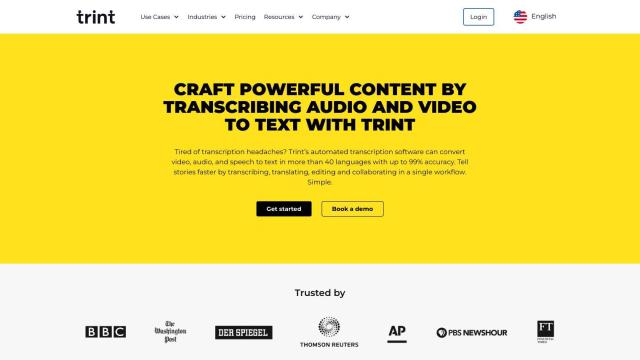
Trint
Last, Trint offers transcription of audio and video files into text in more than 40 languages. Its claim to fame is an easy-to-use interface for verification and editing, real-time collaboration tools and ISO 27001 certified security. Trint is geared for content creators, researchers and businesses that want to automate content creation and data management.

